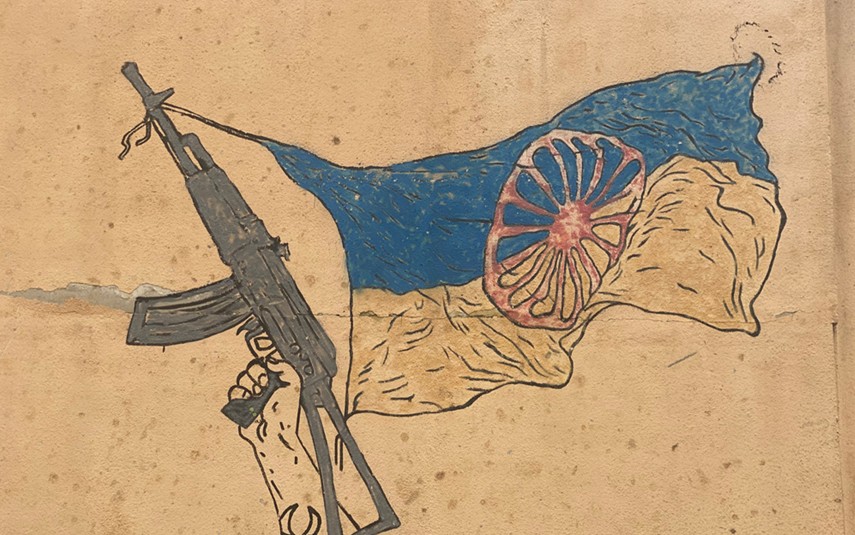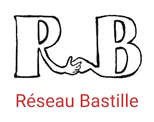
- Cet évènement est passé.
« Ukrainian Roma in the army »
8 novembre 2025 @ 15h00 – 17h00

| We invite you to a meeting about Roma serving in the Ukrainian army. The meeting « Ukrainian Roma in the army » will take place on Saturday 8th November, 15.00 CET.Meeting in English. Registration link: https://us02web.zoom.us/meeting/register/NmwSW6IES1qe29WW1vfA-wOur guest will be Yanush Panchenko, a Ukrainian ethnographer of Roma origin, researcher and public figure specialising in the study of Roma culture, history and language, and a researcher at the Institute of Ethnology of the Czech Academy of Sciences. His scholarly work focuses on several key areas. The first area involves the study of the nomadic lifestyle, traditional culture, and economic activities of Romani groups in Ukraine. He also examines contemporary aspects of Romani traditional culture and the potential recognition of Romani groups in Ukraine as indigenous peoples. The second area of his research is the study of Romani language. Yanush studies the Vlaxur’a and Servur’a dialects, which led to the creation of the first dictionary of the Vlaxur’a dialect, currently in preparation for publication. Since the onset of Russia’s full-scale invasion of Ukraine, Yanush has been studying the migration of Ukrainian Roma and their adaptation to forced migration conditions, particularly in Germany. He also explores the impact of war on Romani traditional culture and the participation of Roma in the Russo-Ukrainian war.In addition to his academic work, Yanush is actively engaged in informal education for Romani youth. He is the author of educational materials for Romani children, including Adinoj tai pistroj rromanes, (co-authored with Makhotina and Dorokhmanov). Moreover, he works on translating literature into the Romani language. One of his notable translations is My First Bible in Pictures into the Romani language.Key issues we want to talk about at the meeting: This presentation presents the results of research on the participation of Ukrainian Roma in the Russian-Ukrainian war as part of the Armed Forces of Ukraine. The work is based on a comprehensive approach that includes analyzing the experience of direct combat participants and studying public opinion among the civilian Roma population of Ukraine. The research examines Roma participation in the war through several key aspects. The first is an analysis of the motives for Roma representatives joining the Ukrainian army, their personal combat experience, and interactions with fellow soldiers. The second is the reaction of the civilian Roma population to their compatriots’ participation in the war and changes in how Roma society perceives the army. Special attention is paid to the impact of the 2022 full-scale Russian invasion on Romanipe – the traditional ethnic identity and self-awareness of Roma in Ukraine. Another important research question concerns the transformation of Ukrainian Roma attitudes toward the Ukrainian army and state. Before 2022, the Roma population distanced itself from military service and held extremely negative attitudes toward law enforcement structures, with service in such structures ranking among the lowest levels of prestige in the Roma value system. In 2022, the authors hypothesized that during the full-scale war, changes occurred in Roma society’s perception of law enforcement structures. This study tests this hypothesis by documenting changes and analyzing factors that influenced or did not influence the new perception of military service among Roma. An important element of the work is a comparative analysis with the historical experience of Roma conscription into the Soviet Army during World War II. This comparison reveals common patterns and differences in the perception of military service, integration into the military environment, and the impact of war participation on ethnic identity. The empirical base includes in-depth semi-structured interviews with nine Roma servicemembers and three focus groups with the civilian Roma population (3 to 6 people in each). The study represents various sub-ethnic groups: Servur’a, Vlaxur’a, Ruska Roma, South Slovak Roma, and Lovari. The geographical scope covers Zakarpattia, Kherson, Zaporizhzhia, and Dnipropetrovsk regions. The methodology includes ethnographic observations from June 2023 to June 2025, which made it possible to trace the dynamics of changes in war perception and document everyday practices, discourses, and the evolution of relationships within Roma communities under conditions of ongoing conflict. It`s the second public meeting organised by ENSU focused on Ukrainian Roma. The link to the first one (« Ukrainian Roma at the time of war: Resilience and activism ») can be found here. |
